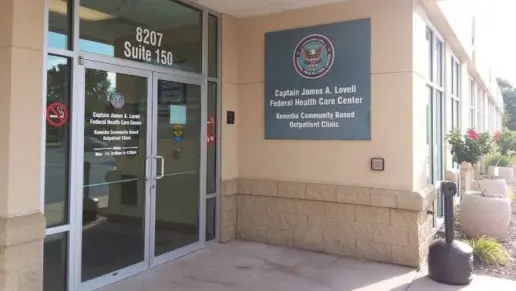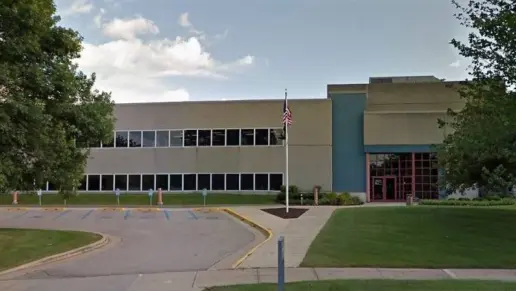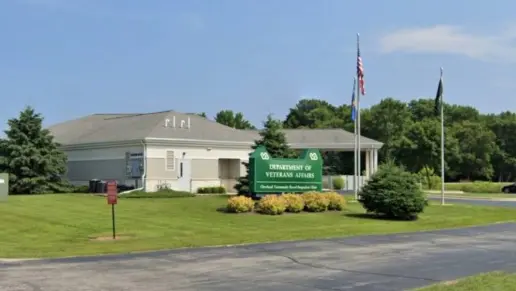While I have been to only 2 detox locations First step by far was the worst undoubtedly when it comes to personal care. There was absolutely no care whatsoever. It took 3 to 4 hours just to get me into a bed while I was left in the waiting room not in the right frame of mi ...
About Milwaukee Detox Center
Milwaukee Detox Center, a division of the First Step Community Recovery Center, provides residential detox services in Milwaukee, Wisconsin. The facility provides detox services for alcohol and various drugs such as cocaine and heroin. They also help individuals who are addicted to a combination of alcohol and drugs or multiple drugs, which is known as polydrug abuse. The center’s certified services include residential intoxication monitoring and medically monitored residential detox.
When a client arrives, they can expect to receive 24 hour care. They’ll work with a team of healthcare professionals that will include substance use counselors, physicians and nurse prescribers.
As clients go through detox, staff members will employ evidence based treatments to help support recovery. Cognitive behavioral therapy (CBT) is used to help patients challenge their irrational thoughts to change their behaviors and cope with difficult emotions better. Dialectical behavioral therapy (DBT) is also used to teach clients how to control intense emotions, improve their relationships and reduce self destructive behaviors. Milwaukee Detox Center counselors are trained in these therapies as well as other evidence based approaches such as acceptance commitment therapy.
This approach focuses on increasing the client’s motivation to change while also accepting their existing thoughts and feelings. A great thing about Milwaukee Detox Center is that they also employ prize incentives to encourage patients to comply with treatment plans. Before patients are discharged, they provide them with information about therapeutic communities in their area. These houses are residences that help to support a patient’s continued abstinence and develop new, healthier behaviors.
Facility Overview
Latest Reviews
Rehab Score
Gallery

Location
Other Forms of Payment
Self-pay involves paying for treatment out of your own pocket. You can use savings or credit, get a personal loan, or receive help from family and friends to fund your treatment. If you don't have insurance or your insurance plan doesn't cover a specific program, self-pay can help ensure you still get the care you need.
Medicaid is a state based program that helps lower-income individuals and families pay for healthcare. Medicaid covers addiction treatment so those enrolled can use their coverage to pay for rehab. When a program accepts Medicaid the client often pays very little or nothing out of their own pocket.
Addiction Treatments
Levels of Care
Treatments
The goal of treatment for alcoholism is abstinence. Those with poor social support, poor motivation, or psychiatric disorders tend to relapse within a few years of treatment. For these people, success is measured by longer periods of abstinence, reduced use of alcohol, better health, and improved social functioning. Recovery and Maintenance are usually based on 12 step programs and AA meetings.
The goal of drug rehab in Wisconsin is to address drug addiction as a complex issue that involves physical, mental, and relational aspects. During rehab, treatment focuses on each of these areas and gives you the tools you need to achieve and maintain sobriety.
Many of those suffering from addiction also suffer from mental or emotional illnesses like schizophrenia, bipolar disorder, depression, or anxiety disorders. Rehab and other substance abuse facilities treating those with a dual diagnosis or co-occurring disorder administer psychiatric treatment to address the person's mental health issue in addition to drug and alcohol rehabilitation.
Opioid rehabs specialize in supporting those recovering from opioid addiction. They treat those suffering from addiction to illegal opioids like heroin, as well as prescription drugs like oxycodone. These centers typically combine both physical as well as mental and emotional support to help stop addiction. Physical support often includes medical detox and subsequent medical support (including medication), and mental support includes in-depth therapy to address the underlying causes of addiction.
Substance rehabs focus on helping individuals recover from substance abuse, including alcohol and drug addiction (both illegal and prescription drugs). They often include the opportunity to engage in both individual as well as group therapy.
Programs


Clinical Services
Research clearly demonstrates that recovery is far more successful and sustainable when loved ones like family members participate in rehab and substance abuse treatment. Genetic factors may be at play when it comes to drug and alcohol addiction, as well as mental health issues. Family dynamics often play a critical role in addiction triggers, and if properly educated, family members can be a strong source of support when it comes to rehabilitation.
In individual therapy, a patient meets one-on-one with a trained psychologist or counselor. Therapy is a pivotal part of effective substance abuse treatment, as it often covers root causes of addiction, including challenges faced by the patient in their social, family, and work/school life.
Amenities
-
Residential Setting
-
Private Setting
Staff

Medical Director

Executive Director

Director of Nursing

CFO

Director of Transitional Housing Services

Executive Program & Operations Analyst

Director of Business Development
Contact Information
2835 North 32nd Street
Milwaukee, WI 53210


